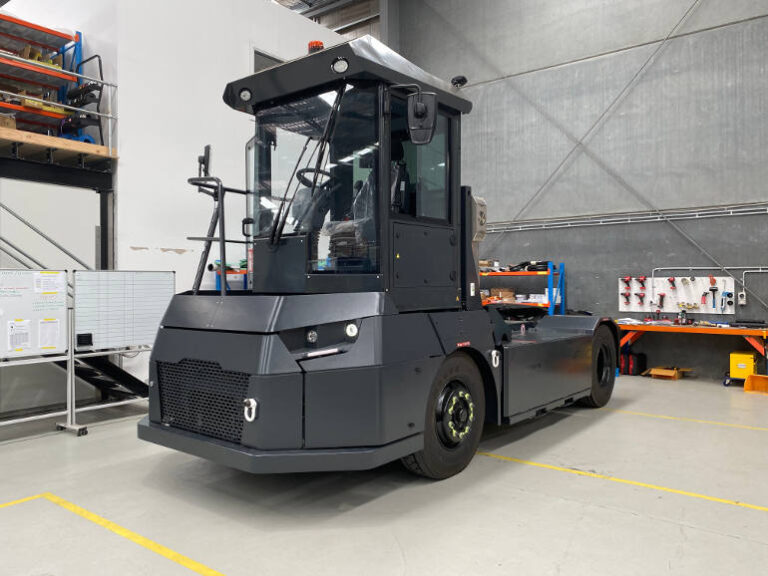Nexport is an exciting company in the zero emissions vehicle space. The display at Megatrans, and the Australasian Bus and Coach Expo, generated plenty of conversations and provided a peek into the future of moving goods and people.
On their website, Nexport describes themselves as a next generation company that acts as an integrator of technology systems and infrastructure providers to bring together simple turnkey solutions for business and governments.
When I found out Nexport had a factory in Sydney building electric buses and zero emission prime movers, I took the opportunity to visit with Rod Pulbrook, Sales Director – Industrial Products.
Nexport has 85 electric buses operating across Australia. They are in Sydney as part of the NSW Government Zero Emission Bus program; in Queensland for Translink; and others being used for airport transfers. After an initial launch and much fanfare, the rollout slowed for a few years until recently when the NSW government committed to introducing 1,200 new electric buses across greater Sydney by 2028, and the upgrade of 11 existing bus depots to support the charging infrastructure.
The electric prime movers being assembled by Nexport in the Glendenning factory are imported in kits from Gaussin. They are yard tractors which are used to moved trailers around transport depots. A very specialised asset perfectly suited to operating on battery power.
There is an ATM 38T model operating in Melbourne as part of a trial with Toll Group and Coles Group and Pulbrook advised that all parties are very happy with the progress so far.
“We’re learning a lot from the trial and everyone is working together to make it a success,” explains Pulbrook. “The vehicle can run 7-8 hours before the battery needs to be swapped using a forklift. It only take three and half hours to recharge the battery so the operating conditions for this Gaussin ATM are well matched to the operational requirements of a 24/7 transport yard.”
One significant benefit reported during the trial was from the drivers. They felt less fatigued after a shift in an electric yard tractor compared to spending a day in a diesel powered truck. This feedback is common when talking to the driver any electric truck, bus, van or car.
During my visit I saw the Nexport team and representatives from Gaussin finalising the build of an APM 75T model which will be delivered in early 2023 to the Bell Bay port in Tasmania.
Since August 2021, Centreport in Wellington NZ have been operating seven APM 75T units so Nexport have access to battery performance data that provides confidence the vehicles will work in other ports around Australia.
CentrePort was the first port in New Zealand to commission 100 percent electric vehicles for land-based container transfer movement and the vehicles are helping CentrePort towards its target of reducing carbon emissions by 30 percent by 2030.
Pulbrook says customers are queuing to trial the Gaussin vehicles and Nexport are perfectly placed to help them reduce their transport emissions. As a next generation company, Nexport aren’t locked into a traditional sales model. They can be flexible and provide a low risk entry for organisations into zero emission vehicles which may involve leasing, ownership or subscription.
“We look at providing the right solution because not every business operates in the same way, and the pressure to reduce emissions can place extra challenges on an organisation,” says Pulbrook. “And this is the Nexport advantage.”






